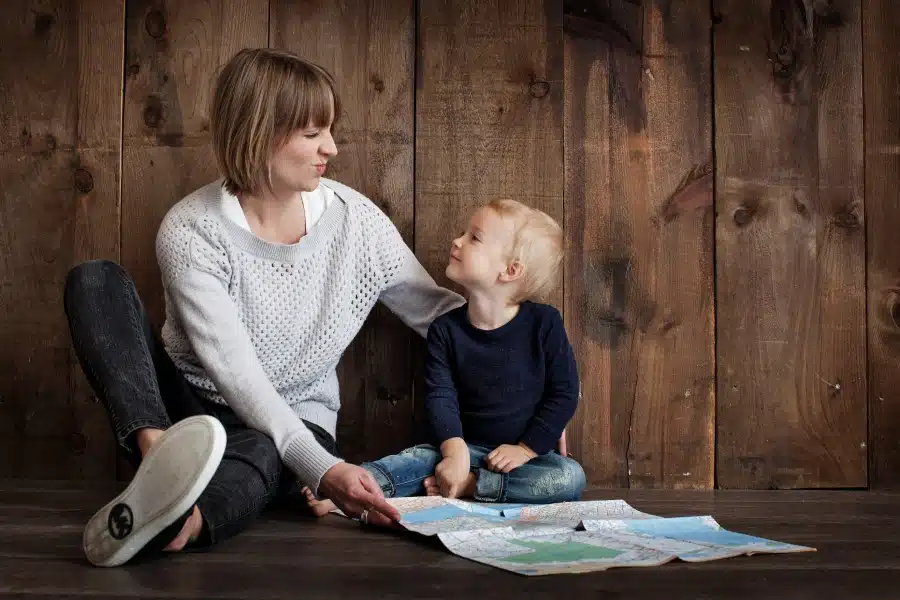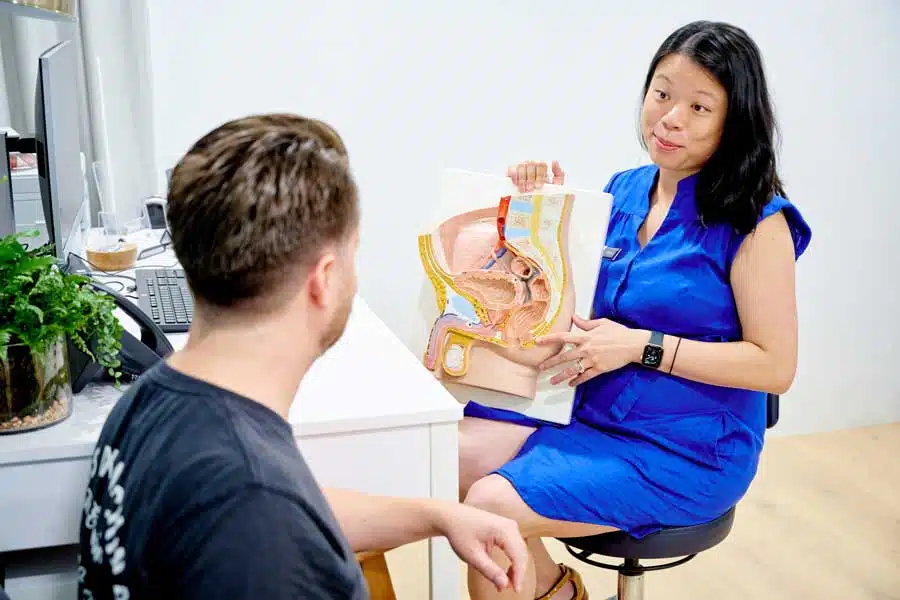Have you looked at your child’s poo recently? There is a lot that can be learned by analyzing a child’s bowel movement, or lack thereof, when looking at overall health. With a clearer understanding of bowel movements, you can much better notice and treat child gut issues, like faecal incontinence and constipation. If you have a child struggling with bowel issues like irritable bowel syndrome, inflammatory bowel disease, faecal incontinence, or even chronic constipation, we are here to help. Read on to learn more about different poop problems that can impact children, and what you can do to treat them and get back to regular bowel movements.
Common Poo Problems
To begin, let’s brush up on our knowledge of the conditions that can impact a child’s bowel habits.
Constipation
Constipation is an issue where a child has issues completing regular bowel movements. When struggling with constipation, your child will have hard bowel movements and will struggle to have bowel movements regularly.
Your child’s symptoms when dealing with constipation can include:
- Stomach cramping
- Loss of appetite
- Developing an anal fissure
- Avoiding using the washroom
- Infrequent bowel movement
- Painful bowel movement
- Abdominal bloating
- Childhood constipation
Childhood constipation can have a wide range of causes. It could be a result of diet, or it could be avoidance if your child had a scary or traumatic bathroom experience. Constipation can also be a symptom of different diseases and disorders. It’s important to meet with a child’s doctor when dealing with severe constipation to find the root cause of the issue. A health care professional can take a look at a child’s diet, lifestyle, and toilet behaviour to find the right way to treat child’s constipation. Treatment for constipation will vary, but common treatments include prescribing a stool softener or laxative, a change in diet, and a new approach to toilet training to help a young child learn to like the washroom. Your healthcare professional will have different approaches, though, if your case is more severe.
Encopresis
Encopresis, also referred to as soiling or faecal incontinence, is a condition where a person involuntarily passes stool. This bowel leakage is the result of impacted stool building up in the child’s rectum/colon, causing it to become full and leak liquid stool. Over time, the faecal impaction in the colon and rectum can lead to stretching of the bowels, and a loss of bowel control over bowel movements.
Your child’s continence concerns when dealing with this condition can include:
- Leaking liquid stool
- Constipation
- Irregularly large stool
- Irregular bowel movements
- Loss of appetite
- Abdominal pain
- Bedwetting issues
- Bladder infections
Faecal incontinence is the result of a child who has suffered chronic constipation, leading to a buildup of stool in the bowels and anal canal. Other causes can include colonic inertia (a colon condition where the colon cannot contract to move stool), nerve damage in the digestive tract, anal muscles or sphincter muscles, or fears and stress around using the bathroom. Treatment for bowel incontinence will vary from case to case depending on a patient’s symptoms. Potential treatment methods include the removal of impacted stool, the use of an enema, prescription stool softeners, and even changes to diet.
Types of Poo
Did you know that just looking at poop can help you understand more about health? Using the Bristol Stool Chart, we can see insights into health. Here’s what different bowel movements say about our health:
Type One: Separate Hard Lumps
If your poop looks like small, hard pebbles, it indicates that you’re dealing with severe constipation.
Type Two: Lumpy Sausage Like
If your poop looks like a lumpy sausage, or like all the hard little pebbles formed in a log, you’re dealing with mild constipation.
Type Three: Cracked Sausage
If your poop looks like a sausage shape with cracks, this is a normal movement.
Type Four: Smooth Sausage
If your poop is smooth and in the shape of a sausage or snake, this is normal.
Type Five: Soft Blobs
If you find yourself pooping soft blob-like shapes with clear edges, your diet needs more fibre.
Type Six: Mushy with Ragged Edges
If your poop is coming out in soft, mushy blobs with ragged edges, you are dealing with mild diarrhea.
Type Seven: Liquid Poop
If you have extremely loose stool/watery stool with no solid pieces, you are dealing with severe diarrhea.
Bowel Health + Self Esteem
Poop and bowel movements aren’t always a favoured topic of conversation, but it’s still important to talk about. Everybody poops, and our poop can tell us a lot about our health. Despite how impactful our bowels are on our life and health, it’s still difficult to discuss, especially for kids. Dealing with bowel problems as a kid can have a huge impact on self-esteem. Any health issue that has to do with the washroom can have children feeling ashamed and likely to hide issues from family and friends. As this is something kids struggle to talk about, it can leave them feeling down and bad about themselves. Low self-esteem in kids can, in turn, bleed into other areas of their life, impacting their attitudes in the home and at school. That’s one of the biggest reasons why we think dealing with it is so important, so your kids can focus less energy on their bowels and more on just being a kid.
How Can Parents Help
If you have a child dealing with bowel accident problems, there are some steps you can take to help treat the issue:
Change Your Diet
Bowel health can be greatly impacted by diet. In many cases, increasing fibre can have a positive impact on children dealing with constipation. To help your child, try to up their fruit and vegetable intake. Go for high fibre fruits like plums, peaches, apricots, and prunes, which can act as a natural laxative. Incorporating high-fibre whole bread and cereal can also help.
Up Your Water Intake
Increasing water intake can also help, softening hard poop in the digestive tract and increasing regular bathroom visits. If your child is over 18 months, try to decrease milk and increase water intake at mealtimes.
Increase Exercise
By increasing physical activity, you can encourage your child’s bowels to get moving! Try taking your child for a walk or run to encourage more regular bowel movements.
Need Help? Get an Assessment with SPC
Some bowel issues need healthcare intervention. If your child is struggling with poo problems and home remedies aren’t helping, meeting with a healthcare provider can make a big difference. Sometimes, poo problems can start as a result of different pelvic floor issues or disorders, caught by a child’s doctor. At SPC we have a team of dedicated pelvic healthcare providers who know all about childhood pelvic and gut issues. Make an appointment with our Kids’ Continence service to meet with a Pelvic Health Physiotherapist for a full assessment and custom treatment plan for your child. To learn more and book a consultation, click here.

